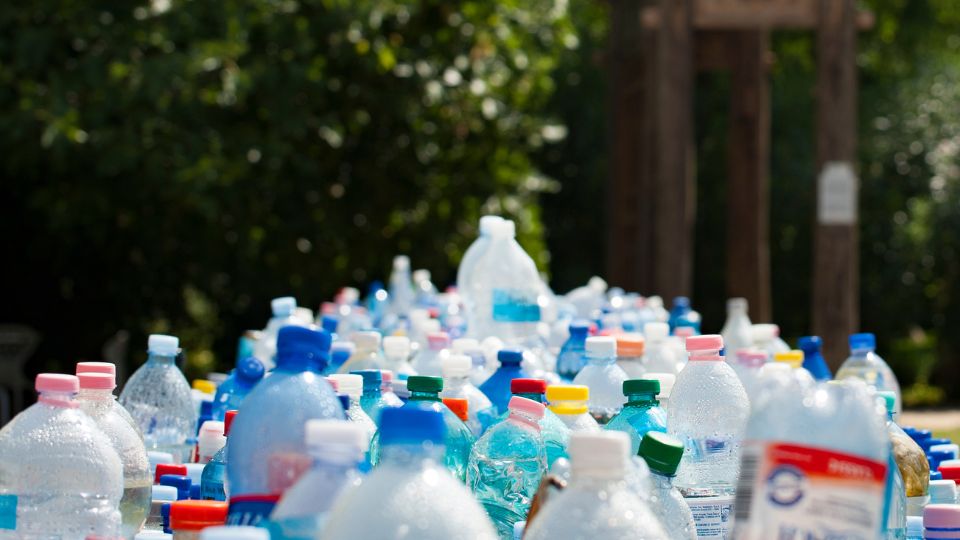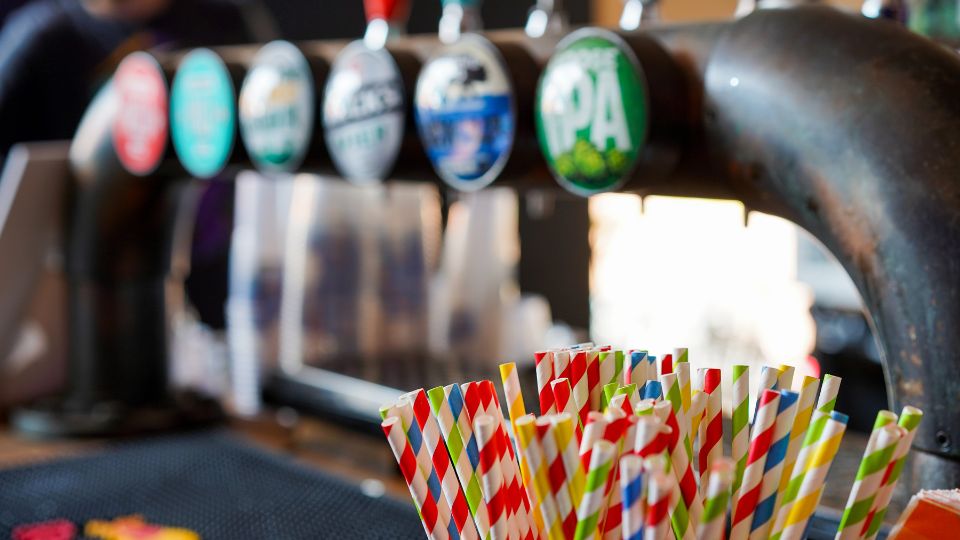
As environmental awareness grows, businesses in the hospitality sector are increasingly looking for ways to reduce their ecological footprint. Single-use plastics, which are prevalent in pubs and clubs, are a significant concern due to their environmental impact.
Transitioning to eco-friendly alternatives can enhance your establishment’s sustainability credentials and also appeal to environmentally conscious customers. Here, we explore practical and effective alternatives to single-use plastics in pubs and clubs, and how you can implement them in your business.
Table of Contents
- Can Pubs Use Single-Use Plastics?
- Can Pubs Use Single-Use Plastics?
- How Can Waste Be Reduced in Pubs and Clubs?
- What Can Pubs and Clubs Use Instead of Plastics?
- Benefits of Transitioning to Eco-Friendly Alternatives
- Conclusion
Can Pubs Use Single-Use Plastics?
Although pubs are still permitted to use single-use plastics, there is increasing pressure from both regulatory bodies and consumer preferences to move away from them. Single-use plastics significantly contribute to environmental pollution and take centuries to decompose. Many regions are introducing bans or restrictions on these items, making it important for pubs and clubs to explore more sustainable alternatives.
Can Pubs Use Single-Use Plastics?
While pubs can technically still use single-use plastics, there is growing pressure from both regulations and consumer preferences to move away from them.
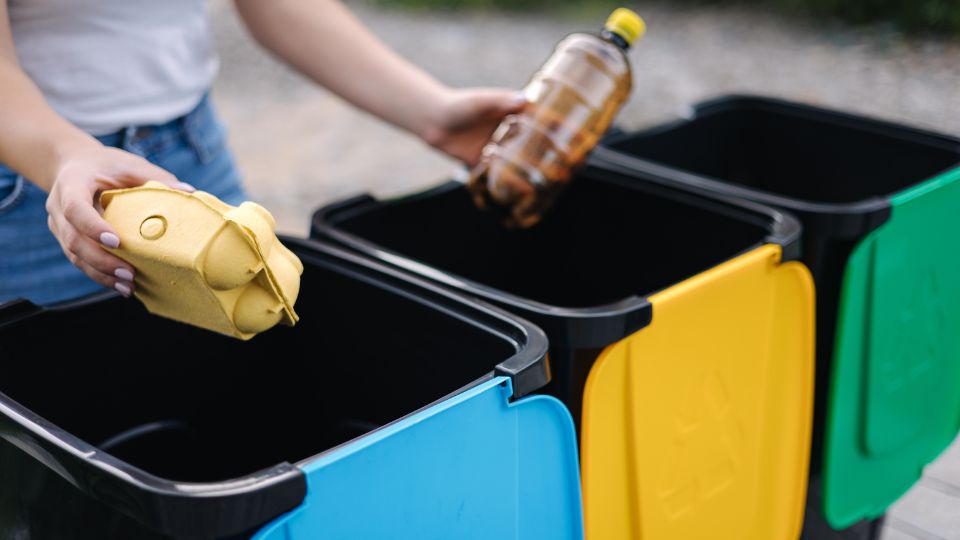
How Can Waste Be Reduced in Pubs and Clubs?
Reducing waste in pubs and clubs involves a multifaceted approach that includes minimising the use of single-use items, improving recycling practices, and opting for sustainable alternatives. Here are some strategies:
Eliminate Unnecessary Plastics:
Assess the items used in your establishment and identify where plastics can be replaced with sustainable options. This includes examining everything from straws and cutlery to packaging and decorations, ensuring each item is either reusable, compostable, or made from eco-friendly materials.
Encourage Reusables:
Promote the use of reusable items such as cups, glasses, and cloth napkins. In a pub or club setting, this can involve implementing deposit schemes for reusable drinkware and ensuring that customers have access to clean, reusable options, this can help to reduce the reliance on single-use plastics and enhancing the overall sustainability of your establishment.
Implement Recycling Programs:
Ensure that proper recycling bins are available and clearly marked for staff and customers. In pubs and clubs, bins can be strategically placed in high-traffic areas such as near the bar and exits to maximise their use and encourage proper disposal of recyclable materials.
Educate Staff and Customers:
Raise awareness about the importance of waste reduction and how everyone can contribute. In pubs and clubs, this can be achieved through regular staff training sessions and visible signage throughout the venue, highlighting eco-friendly practices and encouraging staff and customers to participate in sustainability initiatives such as using recycling bins and opting for reusable items.
What Can Pubs and Clubs Use Instead of Plastics?
There are numerous eco-friendly alternatives to single-use plastics that pubs and clubs can use. These alternatives not only help reduce environmental impact but also enhance the establishment’s image as a responsible and forward-thinking business.
1. Biodegradable Straws
Problem: Traditional plastic straws contribute significantly to marine pollution and take hundreds of years to decompose.
Solution: Biodegradable straws made from materials like paper, bamboo, or PLA (polylactic acid) are excellent plastic alternatives. These materials break down naturally and much faster than plastic.
Implementation: Offer biodegradable straws to reduce unnecessary usage. Promote the change through signage and staff training, encouraging customers to go straw-free when possible.
2. Reusable Cups and Glasses
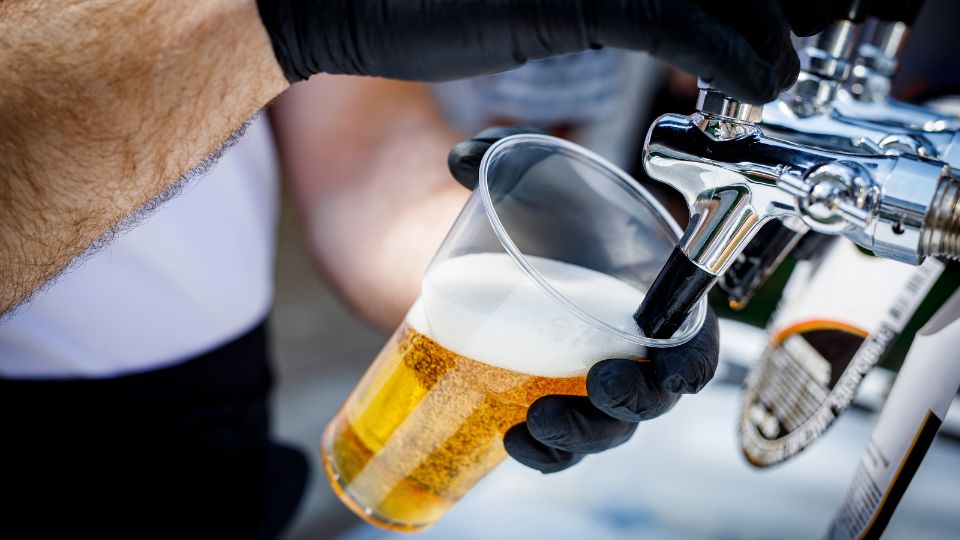
Problem: Plastic cups are commonly used in busy pubs and clubs, especially during events, leading to substantial waste.
Solution: Reusable cups and glasses made from durable materials like stainless steel, glass, or high-quality polycarbonate are sustainable options. For venues that host large events, consider a deposit-return scheme for reusable cups.
Implementation: Introduce a deposit system where customers pay a small fee for a reusable cup, which they get back upon return. This system has been successfully implemented in various festivals and can significantly reduce waste.
3. Compostable Cutlery and Plates
Problem: Single-use plastic cutlery and plates contribute to landfill waste and environmental pollution.
Solution: Compostable cutlery and plates made from materials like cornstarch, bamboo, or palm leaves are environmentally friendly options. They decompose much faster than plastic and can be disposed of with food waste.
Implementation: Transition to compostable alternatives for disposable cutlery and plates, and ensure staff are trained in proper disposal practices to ensure these items are correctly diverted to composting facilities. This ensures that your establishment aligns with sustainable waste management practices while minimising environmental impact.
4. Eco-Friendly Packaging
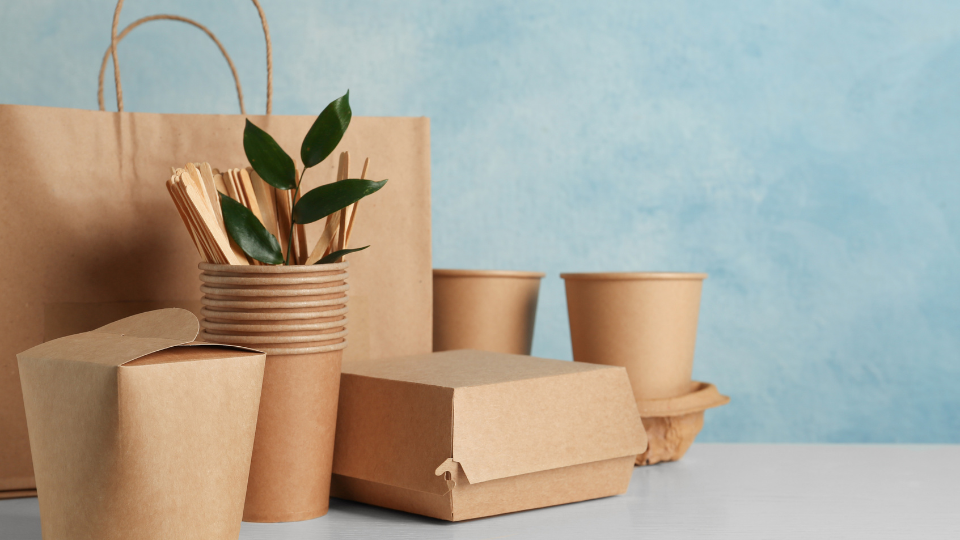
Problem: Takeaway food and drinks often come in plastic containers that are not recyclable or biodegradable.
Solution: Opting for eco-friendly packaging made from materials such as cardboard, compostable PLA, or bagasse (a byproduct of sugarcane processing).
Implementation: Source packaging from suppliers specialising in eco-friendly products. Clearly label these items to inform customers about their compostable or recyclable nature.
5. Reusable Cloth Napkins
Problem: Single-use paper napkins contribute to waste and are often not recycled.
Solution: Reusable cloth napkins are a sustainable alternative that can be washed and reused multiple times, reducing overall waste.
Implementation: Invest in a sufficient supply of cloth napkins and establish a routine for their regular laundering. This option is especially suitable for sit-down areas in pubs and clubs.
6. Refill Stations and Bulk Dispensing
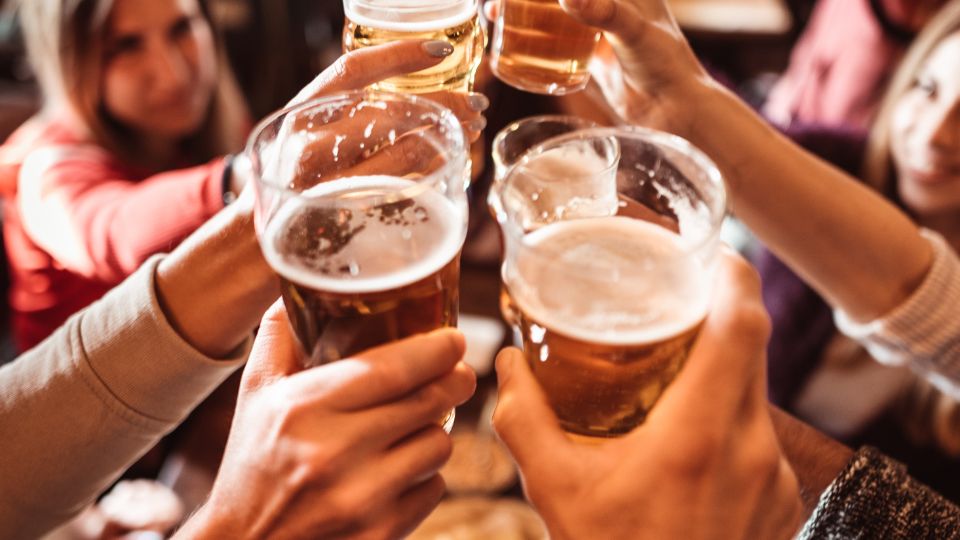
Problem: Individually packaged condiments and drinks result in excessive plastic waste.
Solution: Install refill stations for drinks and bulk dispensers for condiments to minimise packaging waste. Encourage customers to use refillable bottles.
Implementation: Partner with suppliers who offer bulk products and set up refill stations at convenient locations within your establishment. Promote the use of reusable bottles by offering discounts or incentives.
Benefits of Transitioning to Eco-Friendly Alternatives
Environmental Impact: Reducing plastic waste helps protect marine life, reduce landfill, and decrease pollution.
Customer Appeal: Increasing numbers of consumers prefer businesses that are environmentally responsible.
Cost Savings: While initial investments may be higher, long-term savings can be achieved through reusable items and reduced waste disposal costs.
Brand Reputation: Demonstrating a commitment to sustainability can enhance your brand’s reputation and customer loyalty.
Conclusion
Transitioning to eco-friendly alternatives to single-use plastics in pubs and clubs is not just a trend but a necessary step towards a sustainable future. By implementing these changes, you can significantly reduce your environmental impact, appeal to eco-conscious customers, and potentially save on long-term costs.
Start small by making gradual changes, and communicate your efforts to your customers to foster a community of sustainability-minded individuals. Together, we can achieve significant waste reduction in pubs and clubs, one plastic-free pint at a time.

